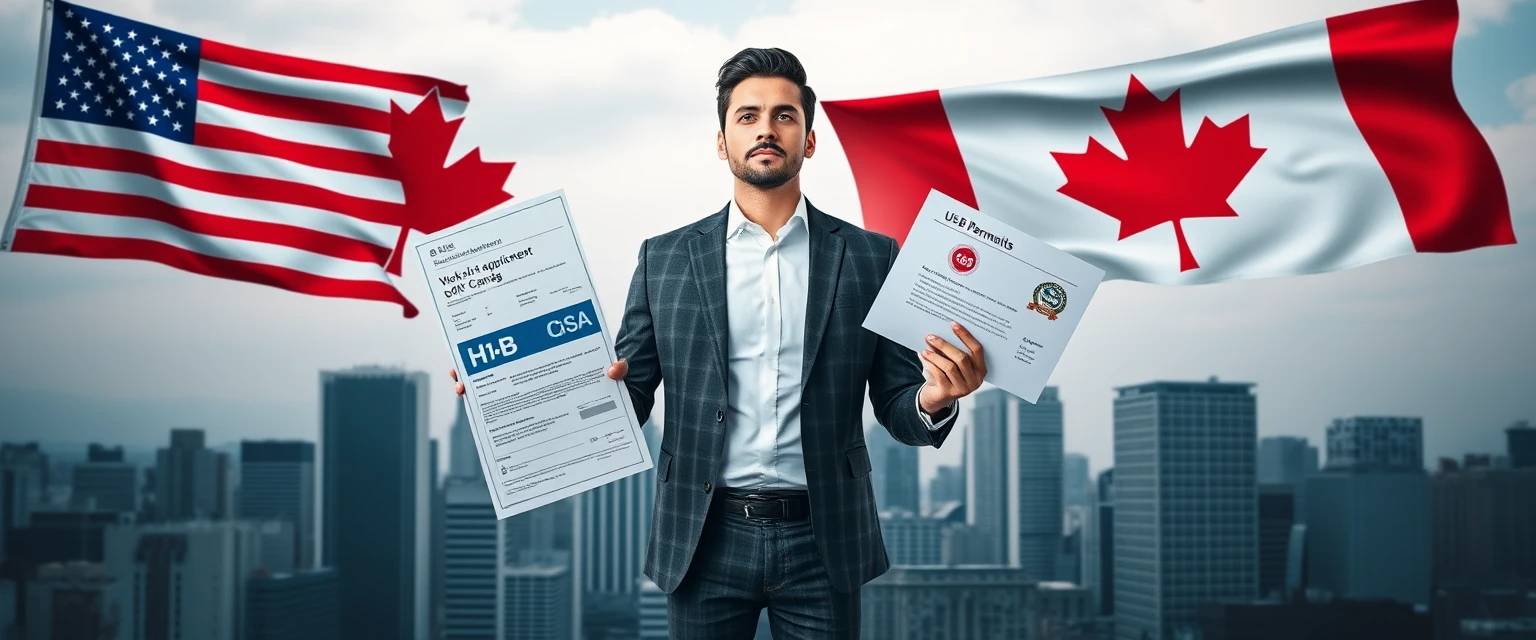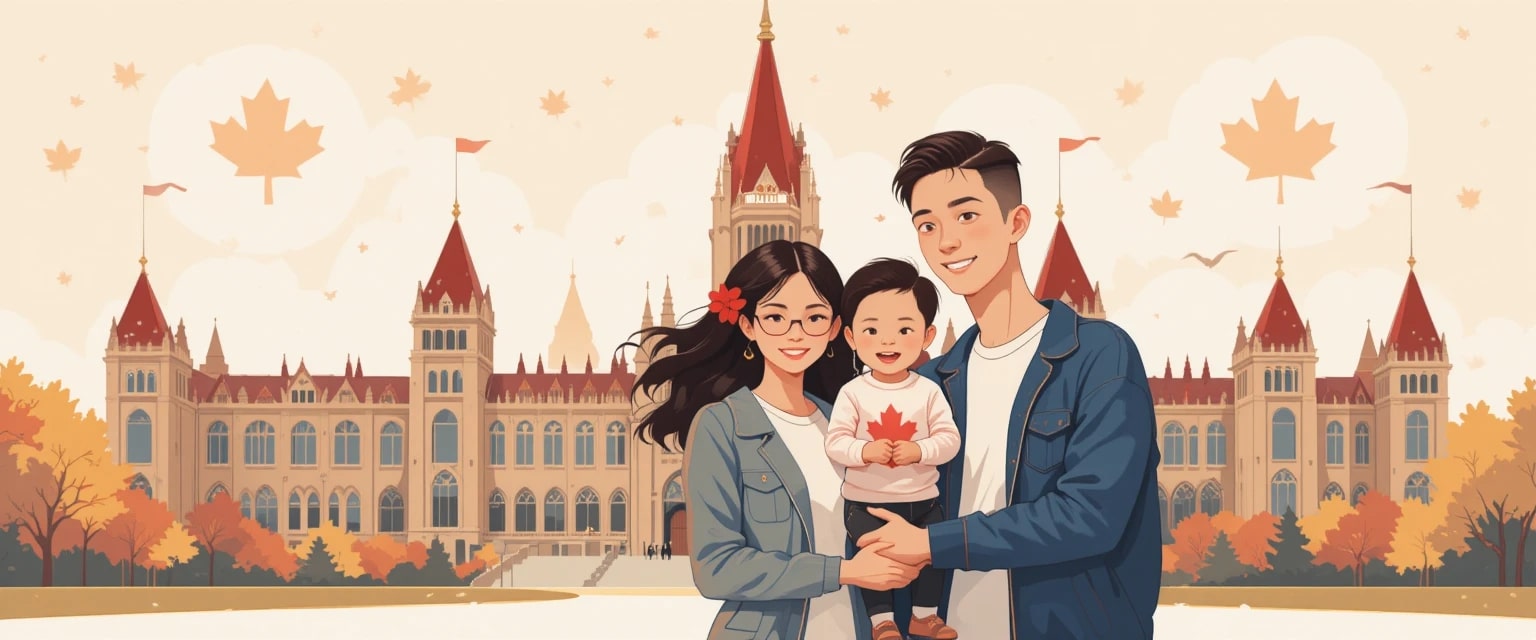Navigating Canada’s Immigration Landscape After the H1-B Visa Fee Hike: Why Sayal Immigration Is Your Trusted Guide
The landscape for skilled workers seeking opportunities in North America is rapidly evolving. Following the U.S. government’s unprecedented increase in H1-B visa petition fees—a staggering $100,000 USD—many international professionals, particularly from India, are reconsidering their options. Canada stands out as an attractive alternative, offering a transparent, efficient, and flexible immigration system. Whether you are searching for an immigration consultant in Brampton, or anywhere else in Ontario including Mississauga, Toronto, or Scarborough, Sayal Immigration is your reliable partner.
Understanding the H1-B Visa Fee Hike and Its Impact
The H1-B visa is a popular route for skilled workers aiming to gain employment in the U.S., with a significant number of applicants coming from India. The abrupt hike in H1-B application fees to $100,000 USD presents new challenges:
-
Financial Strain: The cost increase makes it financially burdensome for many skilled workers and sponsoring employers to proceed with or renew applications.
-
Increased Uncertainty: Higher fees may lead to reduced application volumes, processing delays, and less predictable outcomes.
-
Redirected Career Pathways: These challenges push many skilled workers to explore alternative immigration destinations like Canada.
For Indians particularly, who represent the largest segment of H1-B applicants, the fee hike translates into an urgent need to diversify immigration plans. Canada, with its welcoming policies and multiple immigration streams, provides numerous pathways to live and work legally and securely.
Why Canada Is an Attractive Alternative
Canada’s immigration system prides itself on fairness, clarity, and opportunities for newcomers. Foreign nationals can apply for temporary work permits or pursue permanent residency, depending on their individual circumstances and goals.
Temporary work permits are generally issued for 1 to 3 years, with possible renewals. These permits are ideal for those who want to gain Canadian work experience before applying for permanent status. Permanent residency (PR) grants the freedom to live, work, and study anywhere in Canada indefinitely, making it a highly sought-after goal.
For anyone considering these routes, working with an expert Immigration Consultant in Canada such as Sayal Immigration ensures complete guidance from eligibility assessment to application submission and post-landing services. For official details, visit the IRCC’s official site on work permits and immigration.
Routes to Work in Canada: Programs and Criteria
Canada offers a variety of programs tailored to different categories of workers and immigrants. The most commonly pursued routes include:
1. Temporary Foreign Worker Program (TFWP)
The TFWP allows Canadian employers to hire foreign nationals temporarily. Applicants must have:
-
A valid job offer from a Canadian employer who holds a Labour Market Impact Assessment (LMIA).
-
The LMIA is an official document issued by Employment and Social Development Canada (ESDC), ensuring the foreign worker’s employment will not harm Canadian labour markets.
In some circumstances, employers are exempt from obtaining an LMIA. However, generally, LMIA application processing takes 3–4 months, and fees apply to employers.
Anyone seeking an immigration consultant in London Ontario or surrounding areas should carefully weigh these requirements, and Sayal Immigration offers the requisite expertise to navigate the LMIA and work permit process efficiently. For government guidelines, see: Temporary Foreign Worker Program.
2. Intra-Company Transferee Work Permits
This permit is ideal for employees of multinational corporations transferred to Canadian branches. Requirements include:
-
Employment for at least one year with the company.
-
Role as an executive, manager, or specialized knowledge contributor critical to business operations.
The intra-company transfer pathway provides a seamless way for international companies to bring key talent to Canada.
3. Express Entry
Express Entry is Canada’s flagship immigration system for skilled workers aiming for permanent residence. It includes:
-
The Federal Skilled Worker Program.
-
The Canadian Experience Class.
-
The Federal Skilled Trades Program.
Applicants enter a pool scored under the Comprehensive Ranking System (CRS), and those with top scores receive Invitations to Apply (ITA) for permanent residence.
Canadian work experience obtained via work permits often increases CRS scores, improving chances in the Express Entry pool. Those looking for an immigration consultant in Mississauga or elsewhere should consider starting on a work permit while planning PR through Express Entry. More details available at Express Entry system.
4. Provincial Nominee Programs (PNP)
Over 80 immigration streams exist through provincial nominee programs, tailored to local economic needs. Applicants must:
-
Intend to reside in the nominating province.
-
Meet criteria specific to each province or territory’s program.
PNPs are an excellent way for candidates to gain nomination points boosting their Express Entry profiles. Sayal Immigration assists clients applying from major Ontario cities including Toronto, Brampton, and Scarborough in successfully securing such nominations.
Processing Times and Regional Considerations
Processing times for Canadian work permits vary by country of application and program type. For example:
| Country of Application | Estimated Processing Time |
|---|---|
| India | Approximately 8 weeks |
| Nigeria | Approximately 22 weeks |
| Pakistan | Approximately 12 weeks |
| United States | Approximately 3 weeks |
Compared to the rising uncertainties in U.S. visa timelines due to the fee hike and related policy changes, Canadian processing remains more predictable and transparent.
General Eligibility and Application Requirements
Applicants must meet basic admissibility requirements aside from program-specific criteria. These generally cover:
-
Financial capacity to support oneself and dependents.
-
Medical exams to check for health risks.
-
Security and criminal background clearances.
-
Genuine intent to comply with Canadian immigration laws.
For detailed admissibility standards and application processes, refer to IRCC admissibility criteria.
Sayal Immigration emphasizes fully compliant, accurate applications to avoid delays or refusals, ensuring a smooth pathway for clients in Brampton, Scarborough, and all across Canada.
Family Sponsorship and Work Permits for Dependents
Canada’s inclusive immigration framework allows spouses or common-law partners of main applicants to apply for Open Work Permits (SOWP), granting them flexibility to work while their applications process. Dependent children can also be included, facilitating family reunification and settlement.
For clients seeking a trusted immigration consultant in Toronto, Sayal Immigration offers comprehensive counselling to plan both individual and family pathways to Canadian residency.
Why Choose Sayal Immigration?
When considering immigration to Canada, especially amidst changing global visa landscapes, expertise and integrity are crucial. Sayal Immigration stands out as a dedicated, experienced, and ethical immigration consultant in Kitchener, immigration consultant in Scarborough, and across key cities such as Ontario, Mississauga, Toronto, Brampton, and Scarborough.
-
Industry-leading knowledge of Canada’s immigration laws and programs.
-
Personalized service aligning with clients’ career goals and family needs.
-
Strong emphasis on transparency, professionalism, and client communication.
-
Proven track record helping skilled workers from India and worldwide navigate complex procedures.
To learn more about how Sayal Immigration can guide you, please visit schedule a consultation today.
Frequently Asked Questions (FAQs)
Q1: What is the recent H1-B visa fee hike and how does it impact Indian applicants? A1: The U.S. government has increased the H1-B visa petition fee to $100,000 USD, making it financially difficult for many applicants, especially from India who form the largest H1-B pool. This results in increased uncertainty and processing delays, prompting skilled Indian workers to explore Canadian immigration as a practical alternative.
Q2: What options does Canada offer for skilled workers after the H1-B fee hike? A2: Canada offers temporary work permits through programs like the Temporary Foreign Worker Program (TFWP) and permanent residency via Express Entry and Provincial Nominee Programs (PNPs). These pathways provide flexibility, legal work authorization, and avenues to settle permanently.
Q3: How long do Canadian work permit applications typically take to process? A3: Processing times vary by applicant country and program; for example, Indian applications generally process in approximately 8 weeks. Compared to increased U.S. visa delays, Canada maintains more predictable processing timelines.
Q4: Can family members accompany the primary applicant to Canada? A4: Yes, spouses or common-law partners can apply for open work permits, and dependent children are included in applications, allowing families to reunite and settle together in Canada.
Q5: Do I need a job offer to apply for Canadian permanent residence? A5: Not always. Programs like the Federal Skilled Worker Program under Express Entry do not require a job offer, focusing instead on skills, education, and experience. However, some Provincial Nominee Programs and work permit streams require a valid job offer.
Q6: How can Sayal Immigration assist me with my immigration process? A6: Sayal Immigration provides expert and personalized immigration consulting across Ontario cities including Kitchener, London Ontario, Mississauga, Toronto, Brampton, and Scarborough. Their services include eligibility assessment, documentation support, application filing, and post-landing guidance ensuring a smooth immigration journey.
Q7: What is the Labour Market Impact Assessment (LMIA) and why is it important? A7: An LMIA is a document employers must obtain to hire foreign workers under most work permit programs, showing that hiring does not negatively affect Canadian workers. Sayal Immigration helps applicants and employers navigate LMIA requirements efficiently.
Q8: Is Canadian work experience beneficial for permanent residency applicants? A8: Absolutely. Canadian work experience significantly improves Comprehensive Ranking System scores for Express Entry applicants, increasing chances of receiving an Invitation to Apply for permanent residency.
Q9: Are there specific immigration options for multinational company transferees? A9: Yes, the Intra-Company Transferee work permit allows employees of multinational corporations in managerial or specialized knowledge roles to obtain work permits in Canadian branches without an LMIA.
Q10: Where can I find official information on Canadian immigration programs? A10: Reliable resources include the official Immigration, Refugees and Citizenship Canada (IRCC) website, including detailed pages on work permits and express entry.
If required, Sayal Immigration offers consultations tailored to your unique needs across Canada, helping you understand the best pathways available in Canada’s immigration system amid changing global visa scenarios.







